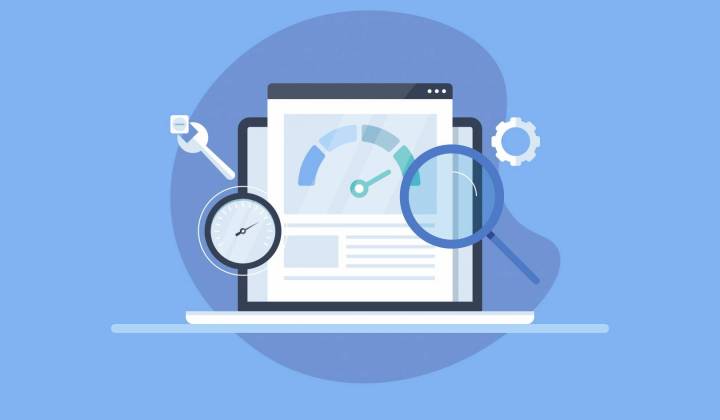Website speed is an important aspect of any online business. It affects user experience, search engine rankings, and ultimately, your business’s success. A slow-loading website can turn away potential customers and lead to a high bounce rate. On the other hand, a fast website can improve user engagement, increase conversions, and boost your website’s visibility in search engines.
In this article, we will explore the importance of website speed, how it impacts your business, and what you can do to improve it. We will cover the following topics:
- Understanding website speed
- Why website speed is important
- How website speed impacts user experience
- Factors that affect website speed
- Tips and tricks to improve website speed
- Frequently Asked Questions about website speed
So, let’s dive in!
Website speed refers to how quickly a website loads and responds to user requests. It is measured in seconds and can be affected by various factors, such as the size of images, coding, server response time, and network speed.
Why Website Speed is Important:
Website speed is crucial for several reasons. First, it affects user experience. Studies show that users are more likely to leave a website if it takes more than three seconds to load. This can lead to a high bounce rate, which can impact your search engine rankings and business success.
Second, website speed is a ranking factor for search engines. Google considers website speed as a ranking factor in its algorithm. A slow website can negatively impact your search engine rankings, making it harder for potential customers to find you online.
How Web Speed Impacts User Experience:
User experience is critical to the success of any online business. A slow website can lead to frustration, lower engagement, and ultimately, lost revenue. Here are some ways in which web speed impacts user experience:
- Page loading time: Users expect websites to load quickly. If a website takes too long to load, users are more likely to abandon it and look for other options.
- Navigation: Slow website speed can also impact navigation. Users may experience delays when clicking on links or navigating between pages, which can lead to a frustrating experience.
- Mobile responsiveness: Mobile users have even less patience for slow-loading websites. If your website is not mobile responsive, it can impact your user experience and search engine rankings.
Factors that Affect Website Speed:
Several factors can affect web speed. Here are some of the most common ones:
- Hosting: The quality of your hosting provider can impact your web speed. A reliable and fast hosting provider can improve your web speed and user experience. If you’re looking for reliable hosting providers for your website, we highly recommend SiteGround and DigitalOcean.
- Images: Large images can slow down your website. Compressing images and using the right file format can help improve website speed.
- Code: Poorly optimized code can impact website speed. Clean, well-organized code can help improve web speed and user experience.
- Plugins: Using too many plugins can also slow down your website. Remove any unnecessary plugins and keep only the ones you need.
- Server Response Time: The amount of time it takes for your server to respond to user requests can also impact website speed. A fast server response time can improve website speed and user experience.
Tips and Tricks to Improve Web Speed:
Now that you understand the importance of web speed and the factors that affect it, let’s look at some tips and tricks to improve your web speed:
- Choose a fast and reliable hosting provider.
- Compress images and use the right file format.
- Optimize code and remove any unnecessary plugins.
- Use a content delivery network (CDN) to improve server response time.
- Enable caching to improve web speed for returning visitors.
- Minimize HTTP requests by combining CSS and Javascript files.
- Use lazy loading to load images only when they are needed.
- Reduce the size of web pages by minimizing HTML, CSS, and Javascript code.
Frequently Asked Questions:
Web speed is a ranking factor for search engines. A fast website can improve your search engine rankings and make it easier for potential customers to find you online.
You can test your web speed using various online tools, such as Google’s PageSpeed Insights, GTmetrix, or Pingdom.
A good web speed is less than three seconds. However, the faster your website loads, the better.
The most common factors that affect web speed are hosting, images, code, plugins, and server response time.
You should check your web speed regularly to ensure it is optimized. It is recommended to check your website speed at least once a month.
Conclusion:
Web speed is a critical aspect of any online business. A fast website can improve user experience, search engine rankings, and ultimately, your business success.
By understanding the factors that affect web speed and implementing best practices, you can improve your website’s speed and boost your online presence.
Remember to test your web speed regularly and make improvements where necessary. With a fast-loading website, you can provide a better user experience for your customers and increase your chances of success in the competitive world of online business.
Do you need help with improving your website speed?
At CreateWP Web Studio, we understand the importance of web speed and the impact it can have on your business. That’s why we offer a range of services to help improve your website’s speed and performance. Our experienced team can provide solutions to minimize HTTP requests, optimize images, and reduce code size to ensure your website loads quickly and efficiently.
If you’re struggling with slow web speed or simply want to optimize your website’s performance, contact CreateWP Web Studio today. We offer customized solutions tailored to your specific needs and budget. Let us help you create a fast, responsive, and user-friendly website that delivers results.
Contact us now to learn more about our website speed optimization services.



